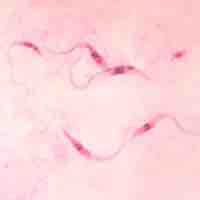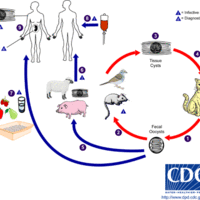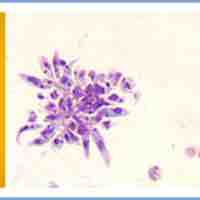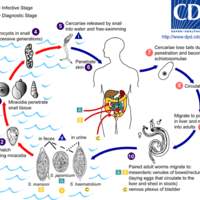Section 10
Protozoan and Helminthic Diseases of the Cardiovascular and Lymphatic Systems
By Boundless

Chagas disease is caused by the protozoan parasite Trypanosoma cruzi and transmitted via the reduviid bug.

Toxoplasmosis is a parasitic disease caused by the protozoan Toxoplasma gondii and its life cycle mandates a definitive host which are cats.
Malaria is a mosquito-borne infectious disease that affects humans and other animals caused by various species of the protist Plasmodium.

Leishmaniasis is caused by the protozoan parasite Leishmania and presents itself in two forms: cutaneous or visceral leishmaniasis.
Babesiosis is a malaria-like parasitic disease caused by infection with Babesia, a parasite transmitted to human hosts by ticks.

Schistosomiasis is a parasitic disease caused by various species of trematodes or "flukes," which are of the genus Schistosoma.

Swimmer's itch is a result of an immune reaction in response to the penetration of the skin by a schistosome.